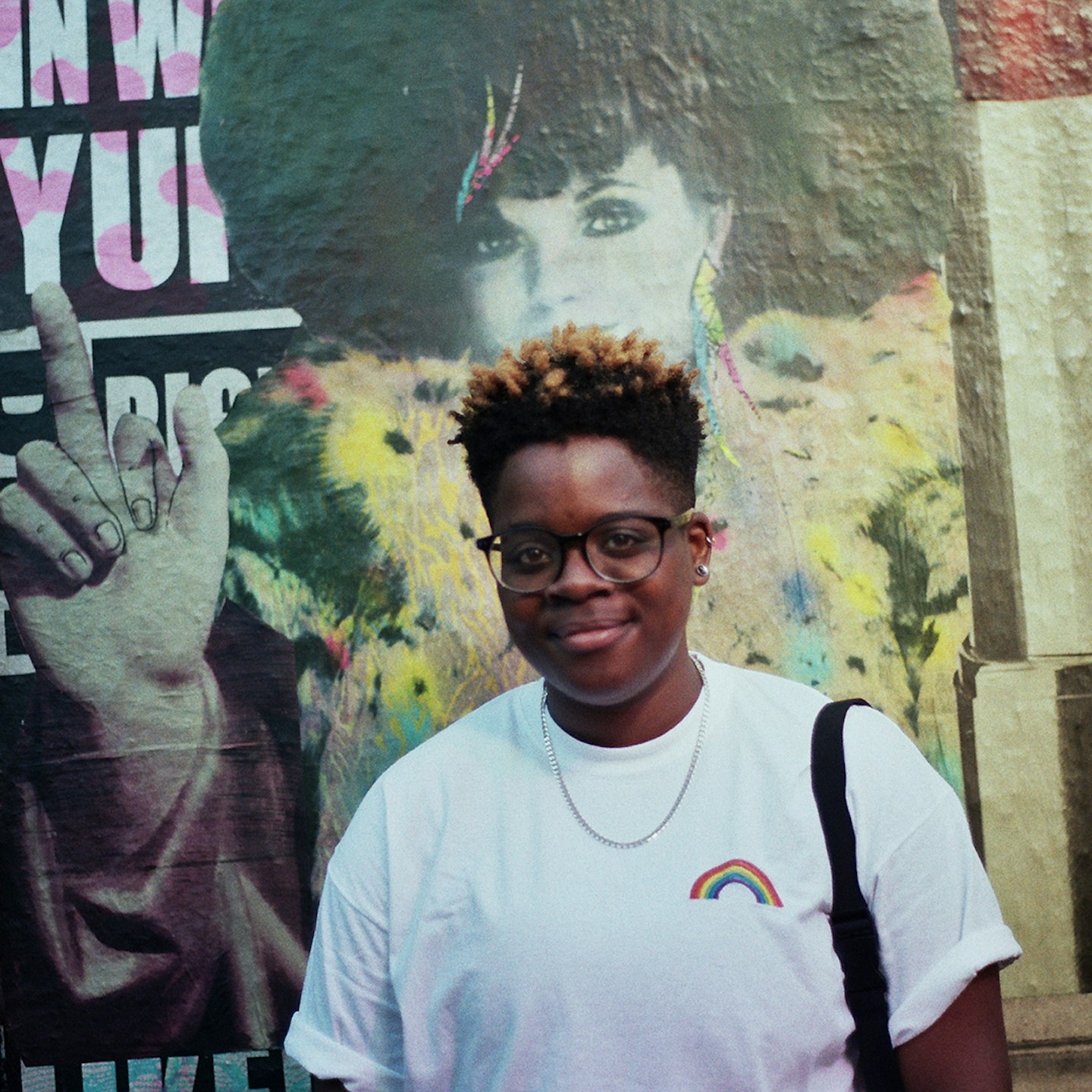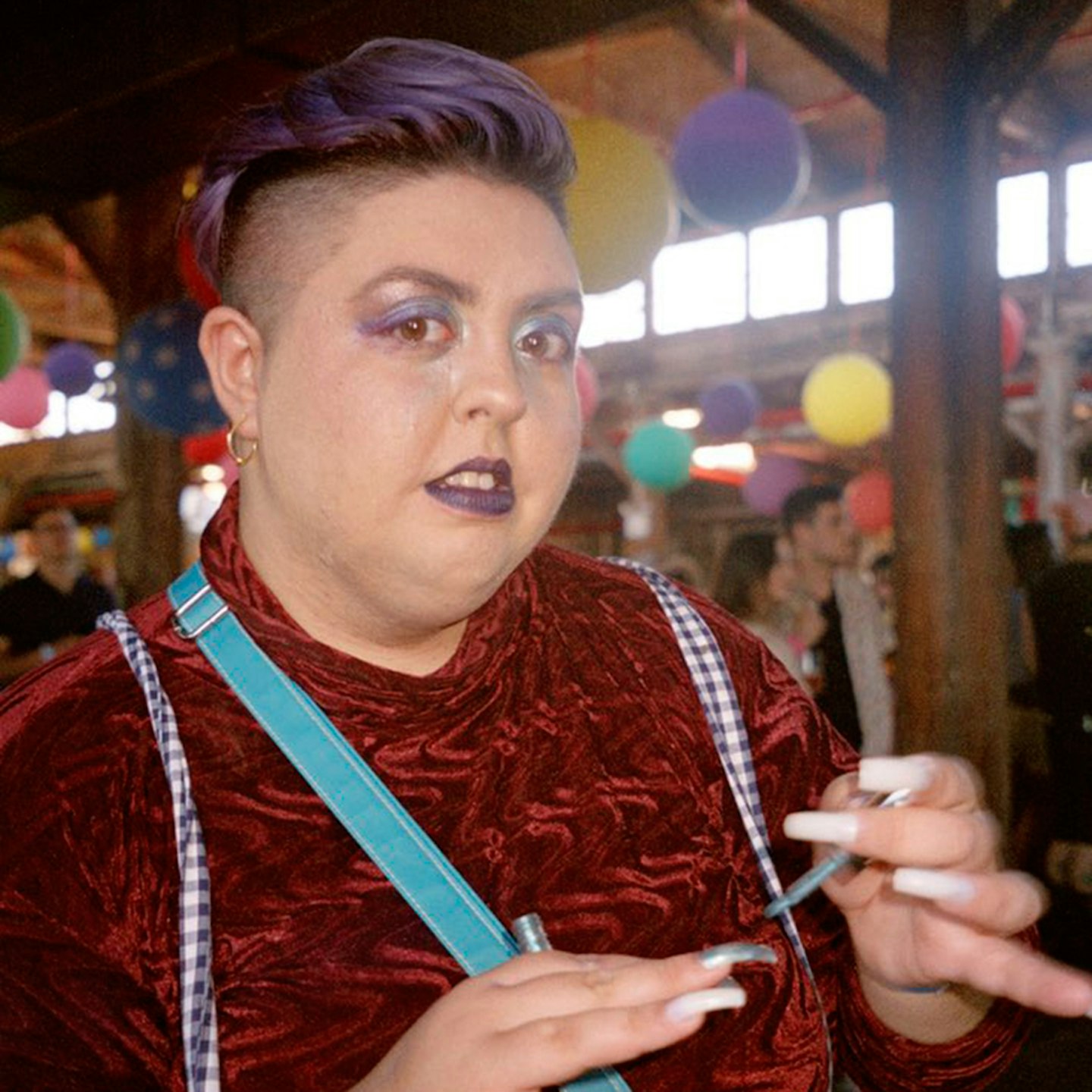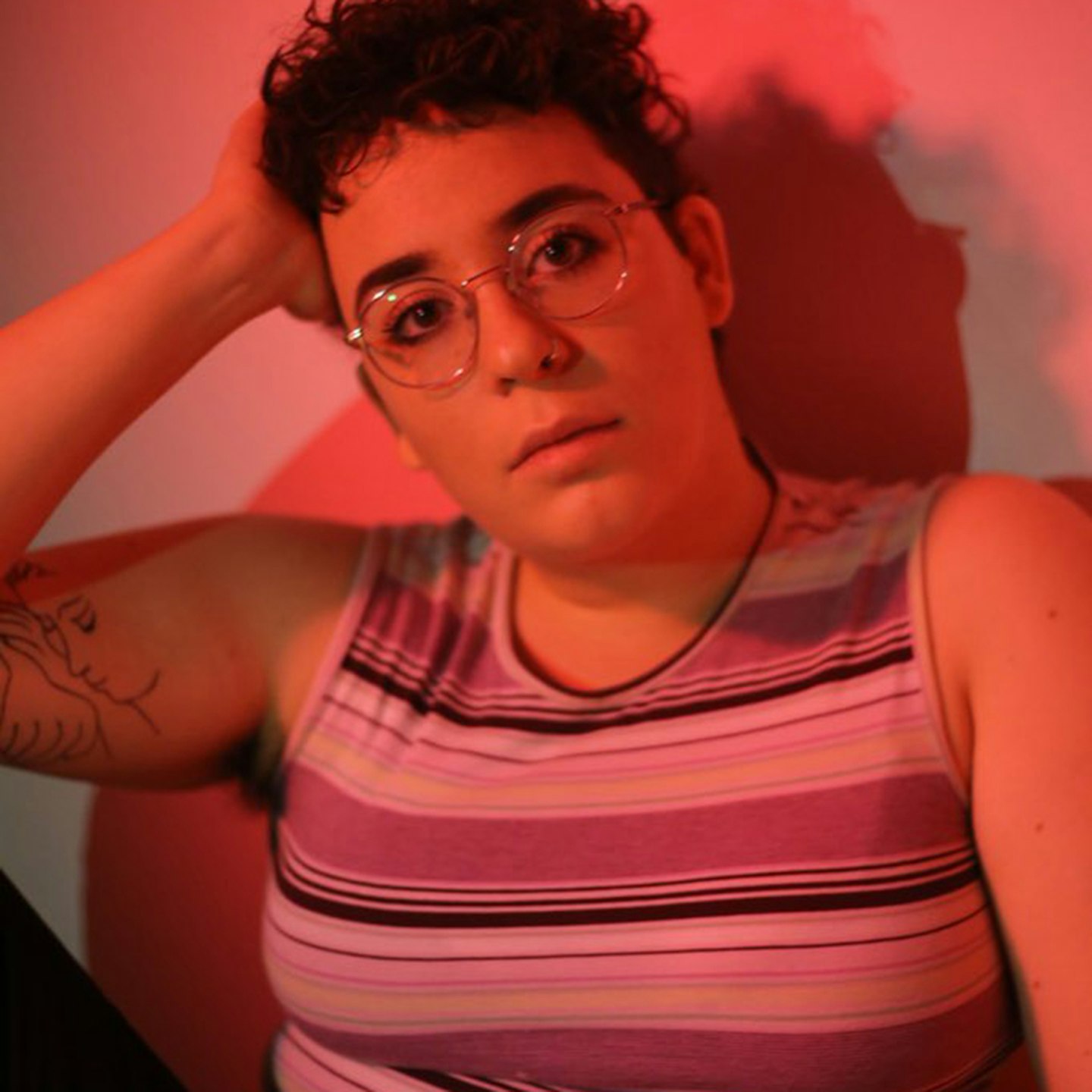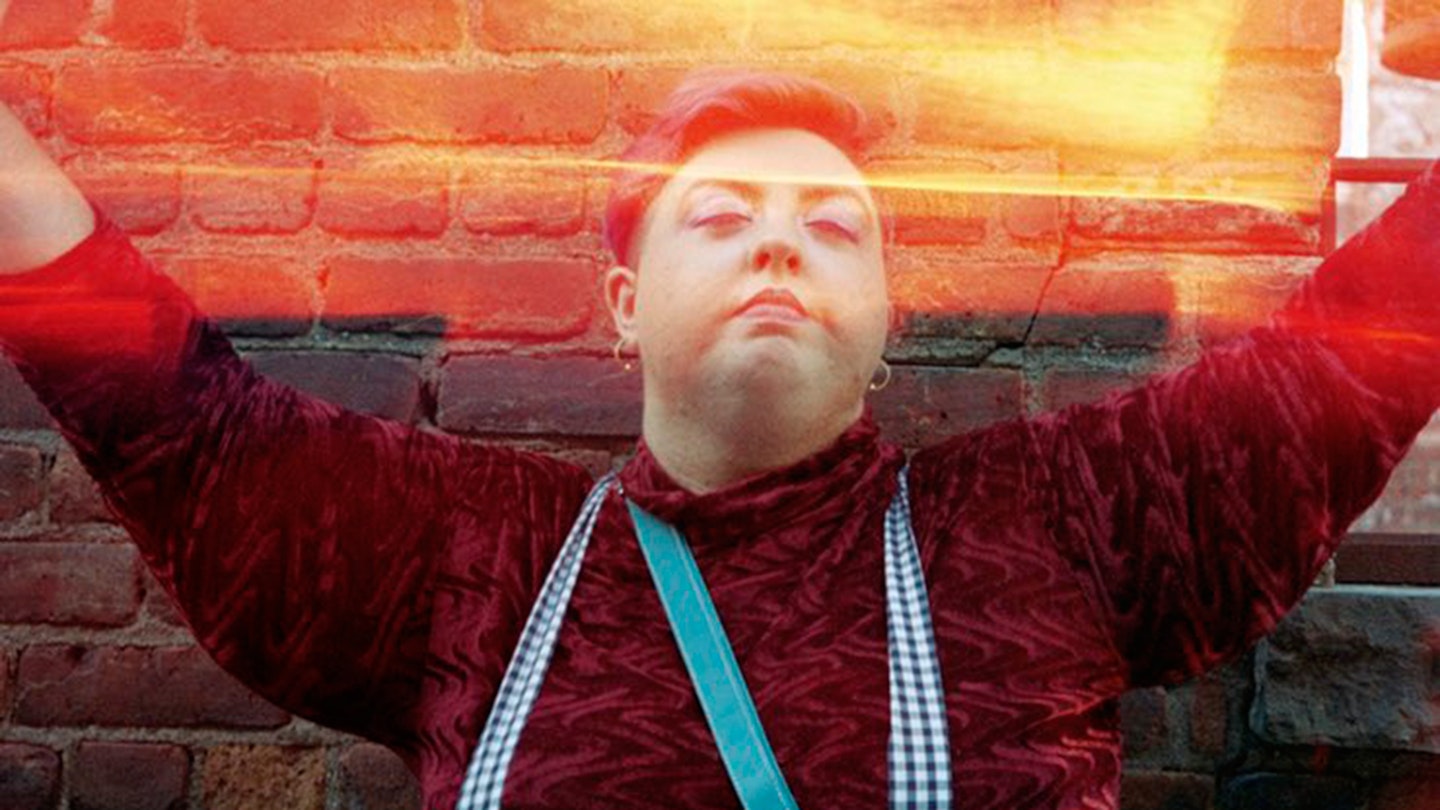The kind of words we use to describe plus-size bodies – phrases that try to make up for the stigma and ‘shame’ of being fat – are inherently feminine. Curvy, plump, shapely, voluptuous, thick (and thicc) bring to mind images of goddesses, of renaissance cherubs, whose femininity relied on their fatter frames. The combination sexualisation and feminisation of fat bodies can feel toxic, with many women speaking out about feeling forced to be hyperfeminine to, in a sense, ‘make up’ for being fat, to be seen as ‘desirable’ in the male gaze.
This pressure isn’t one just felt by the fat female population, but has toxic implications for trans and non-binary people. For those trying to present as an androgynous figure, how do you battle the automatic conflation between thinness and genderlessness?

‘I don’t think I’d be the first person to come to mind if someone thought of a non-binary person,’ comments Candice Armah, a black DJ who has recently opened for Mykki Blanco and runs their own queer Brighton club night Gal Pals, ‘It’s hard enough being acknowledged as non-binary when we’re not even currently recognised or explicitly protected by the law, but being plus size means I don’t fit those expected representations.’
Paloma, a 24 year old Brooklynite, recognises that being fat – a term they prefer used over plus size – affects every aspect of their experience as not only a non-binary person, but a Latinx one too. ‘Every step of the way, my fat body shapes my experience.’ They postulate.

‘I guarantee if I was skinnier, I would have had an easier time with dating, exploring my gender, being validated by my queer peers and society as a whole. Casual fatphobia is one of the strongest forms of oppression that we need to tackle in 2018’, They believe.
All three interviewees agree: Existing under any other intersection of oppressed identity is harder while fat. Safe spaces do exist for plus size, non-binary people but as Yasmin Metcalfe, a 20-year-old from South East London points out, many of these spaces exist within ‘a “safer” more accepting bubble.’

While queer communities are more naturally inclusive, fatphobia can still run riot: Paloma describes their experiences as mainly negative within these spheres, ‘So much fatphobic bullshit happens every day in queer spaces, online and in person. Plenty of people who call themselves liberals openly hate fat bodies and [only] celebrate skinny bodies. I've had people desexualise my body in queer spaces because I'm fat. People don't believe I'm actually trans or gay because of how I present myself.’
From not being taken seriously to, ‘abuse shouted at me outside my own door regarding my size and appearance’ as Metcalfe recounts, the issues against plus size, non-binary people are microaggressions, that fight against that person’s self-worth. These often come from within the community itself, Paloma points out, ‘My last long term partner didn't read me as non-binary or someone who they could find attractive until I called them out on it.’
When ‘popular representations have equated being non-binary to being slim, white and androgynous’ and ‘gender fluidity is usually limited to those with thin bodies and minimal curves’’ it becomes harder for plus size, non-binary people to know how they want to present themselves, even before considering outside pressures. If you’ve never seen yourself represented in the wider world, how do you know how to present yourself and your gender?
For those who present in a butch way, it’s a little easier, according to Candice. ‘Society has always accepted menswear as ‘gender neutral’, which affords me some privilege,’ They comment, ‘When I say that I’m non-binary, people believe me and people even assume my pronouns before asking me. We have some ways to go before feminine presenting non-binary people have the same courtesies extended to them.’
‘It would be a lot easier for everyone if we left our assumptions about what non-binary people have to look like at the door,’ Candice concludes, and the idea is one that can be applied to all marginalised groups: Don’t assume what fat people are meant to look like, don’t assume what non-binary people are meant to look like, and if you’re in a position where you’re representing a diverse group, make sure every kind of person is visible
This article originally appeared on The Debrief.
